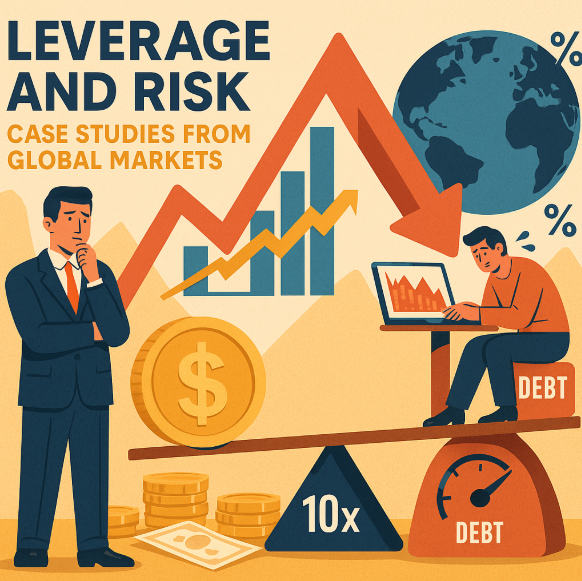Category: Digital Finance
Showing page 1 of 3 with 87 matching results.
 READ MORE
READ MORENew Paths to Financial Access Outside Traditional Banking Banking can look universal from the outside, yet access still depends on where someone lives and what paperwork they can produce. That tension is why financial access outside traditional banking keeps entering policy conversations. In many communities, cash wages, informal housing, and limited connectivity make standard account […]
 READ MORE
READ MOREThe rise of decentralised finance over the past decade has changed the way people perceive money and financial systems. What was once a system constrained by geographical borders and institution-caused delays has now transformed into a global network where value can move instantly across the globe. While this shift of value is a refreshing new […]
 READ MORE
READ MOREGoogle Ads campaigns don’t fail only because of targeting or creative. Sometimes they fail because of billing. A declined transaction, a compromised card, or messy shared spending can pause campaigns and create stress across marketing and finance. Virtual cards are a practical fix: they let you issue dedicated card numbers, set spending controls, and isolate […]
 READ MORE
READ MOREBitcoin can feel like a big leap. This guide breaks it into simple steps any business leader can follow. You’ll learn what to prepare, how to accept payments, how to keep records, and how to protect your company. No hype — just clear actions you can use this week. Why Add Bitcoin to Your Business […]
 READ MORE
READ MOREAs the 31st of January tax return deadline rapidly approaches, this will be the final submission before major changes to the self-assessment process are introduced.
 READ MORE
READ MOREAffinia, the UK’s fastest growing accountancy firm, is urging sole traders, landlords and small business owners to act now on “Making Tax Digital” (MTD), warning that many people who assume the rules do not apply to them could be caught by the forthcoming changes.
 READ MORE
READ MOREIn this exclusive interview Tomi Popoola shares how AI has shaped the financial landscape, how businesses can harness its technological benefits, and why the cloud continues to underpin innovation across the technology sector.
 READ MORE
READ MOREDigital finance is crowded now. Whether you’re a fintech app, a digital lender, a payments platform, or a wealth product, you’re competing against brands that look polished, sound confident, and promise broadly similar outcomes. So people don’t choose you because your homepage is “nice”. They choose you because your website makes them feel safe enough […]
 READ MORE
READ MOREAs we enter 2026, Bitcoin remains one of the most discussed assets in global finance, capturing the attention of both seasoned investors and newcomers alike. Bitcoin has been trading around the high $80,000s to around $90,000 USD recently, reflecting healthy demand amid broader market consolidation. Current price forecasts suggest that if Bitcoin continues on its […]
 READ MORE
READ MOREAR automation software helps finance teams move faster by reducing the manual work involved in invoicing, follow ups and payment tracking. Instead of reacting to overdue invoices one by one, these tools introduce repeatable workflows that keep collections moving in the background while giving teams a clearer view of what needs attention. In 2026, AR […]
 READ MORE
READ MOREICONOMI CEO Peter Curk reflects on 2025 as a year of macro recalibration and crypto consolidation, exploring regional economic divergence, Bitcoin’s institutionalisation, the shake out in altcoins and the disciplined, long term strategies that helped investors navigate structural change.
 READ MORE
READ MOREThe Checkout Is Where Trust Is Won or Lost The final step in shopping — the checkout — is often the most critical. Customers might love your products, but if they don’t find the right payment option, they are more likely to abandon their purchase. In today’s digital economy, payment choice has become a deciding […]
 READ MORE
READ MOREIn the modern financial sector, a successful product development strategy requires deep domain expertise spanning multiple verticals, from core banking modernization to highly regulated payment flows. Building scalable solutions like neobanks, algorithmic trading tools, or integrated payment gateways demands partners who not only code but also master compliance, architectural resilience, and vertical-specific user experience. Choosing […]
 READ MORE
READ MOREPeople seek financial education because they want more financial stability. While some are simply looking to build wealth or a nest egg for their children, others are working all hours just to make ends meet. And learning how to trade, whether stocks and shares or on the crypto markets, seems like a sensible place to […]
 READ MORE
READ MORE2026 is poised to be a big year for fintech, both for individual users and UK firms. New governmental support emerging for fintech innovators in the UK will lead to expanded use cases for new technologies, while tightening rules for users will provide increased security and protection against malicious activity.
 READ MORE
READ MOREFintech is one of the most competitive industries out there, with new players entering the market every year. Whether you’re a start-up or an established company, standing out takes more than having an innovative product. It’s about creating a strong presence, building trust, and offering something customers can’t get elsewhere. Below are five proven practices […]
 READ MORE
READ MOREFinancial management within the construction industry has always been a matter of significant complexity. So, why are so many construction companies moving into the overtly risky domain of cryptocurrency investment?
 READ MORE
READ MOREThese token sales are conducted before the project announces the existence of its utility token on exchanges or completes its full release. Such presale activities provide early investors with ample time to purchase tokens, often at discounted rates or tokenized with incentive options, before they are offered to the broader market. They are essentially early […]
 READ MORE
READ MOREPaying off a big IRS debt is a huge accomplishment. The weight that lifts off your shoulders is real and for the first time in a while you can look to your financial future with hope instead of fear. But once the immediate crisis is over a question emerges: what’s next? Your financial journey isn’t […]
 READ MORE
READ MOREIn this article, experts from the fintech development company Itransition explore the common pitfalls that tech companies face when implementing financial modeling tools and building financial models, as well as share some practical tips to navigate them.
 READ MORE
READ MOREImagine stepping into a high-stakes poker game where you borrow chips from the house to amplify your bets. One winning hand could make you rich, but a single loss wipes you out. That’s leverage in trading: a tool that magnifies gains but also multiplies losses. In global markets, leverage lets traders control large positions with […]
 READ MORE
READ MORELuxury wedding planners, Siobhan Craven Robbins, and Andri Benson have also offered their expert guidance on keeping costs down while planning the perfect day.
 READ MORE
READ MOREAs the world finds itself at a pivotal moment, on the very precipice of digital revolution as never seen before, it’s of utmost importance to close the skill gap around the world – so we’re all prepared for the innovation that’s right on our doorsteps.
 READ MORE
READ MOREArmalytix, today announces the launch of its new Identity Service, a powerful and configurable tool designed to solve the hardest ID challenges for professional services firms.
 READ MORE
READ MORETwo in five (40%) UK crypto investors have had a payment blocked or delayed by their bank when trying to buy digital assets, according to new research from IG.
 READ MORE
READ MOREWhen it comes to moving serious amounts of digital assets, the standard crypto exchange just doesn’t cut it. Slippage, public exposure, and liquidity constraints often make large trades on public platforms impractical. That’s where buying crypto OTC (over-the-counter) comes into play. This lesser-known corner of the market is built for scale, speed, and privacy. Whether […]
 READ MORE
READ MOREWithin the past decade, we have watched as fintech platforms and firms took the global financial industry by storm. Basically, they have revolutionised every aspect of finance, including online money transfers, savings, investment, and payments, with various digital solutions. Clearly, the market for digital financial services is bubbling. And as it continues to grow, the […]
 READ MORE
READ MOREWealthArc, the Swiss-born fintech revolutionizing wealth and asset management with AI-ready data infrastructure and intuitive portfolio management, announced it has surpassed 140 integrated custodian bank new generation data feeds within its proprietary platform, the WealthArc Data Box.
 READ MORE
READ MOREFinancial reporting is an essential business process across all industries that allows companies to keep track of their overall financial health and maintain regulatory compliance.
 READ MORE
READ MOREIncogni, a leading personal data removal service and data privacy company, released a new report that analyzes internet-based crimes targeting Americans aged 60 and older.
 READ MORE
READ MOREMany people’s wealth planning needs go beyond the capabilities of a robo-adviser. How do people know if they have outgrown robo-advisers?
 READ MORE
READ MOREThe rise of mobile banking and financial management apps has changed how businesses and customers interact. The intent: offering increased convenience and efficiency.
 READ MORE
READ MORECryptocurrency investment has always been seen as too risky for businesses. Although potentially lucrative, it’s inherently volatile, with significant fraud potential, meaning that most businesses have preferred to put their money elsewhere.
 READ MORE
READ MOREIntuit Inc., the global financial technology platform that makes Intuit TurboTax, Credit Karma, QuickBooks, and Mailchimp, announced that QuickBooks will support almost two million additional tax payers and their accountants.
 READ MORE
READ MOREAs global investors seek new regions of growth and resilience, Africa is increasingly seen not just as a frontier — but as the future.
 READ MORE
READ MORETrustly, the world’s industry leader in Account-to-Account (A2A) payments, announces the signing of a strategic partnership with Paytweak, a French fintech specialising in modern payment links.









